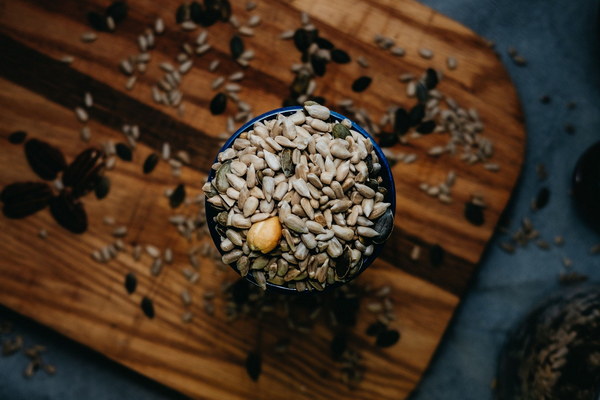Nurturing the Kidneys Insights from a Renowned Female Doctor on Womens Health
In the intricate tapestry of women's health, few organs play as pivotal a role as the kidneys. These vital organs not only filter waste and excess fluid from the blood but also regulate blood pressure, produce red blood cells, and maintain electrolyte balance. Dr. Emily Carter, a renowned expert in women's health and kidney care, has dedicated her career to demystifying the importance of kidney health and offering practical advice on how to nurture and protect this essential organ. Here, we delve into the insights of Dr. Carter on the art of kidney care for women.
The kidneys: The silent guardians of health
Think of the kidneys as the body's filtration system, Dr. Carter explains. They work tirelessly to keep the blood clean and the body in balance. However, she emphasizes that despite their importance, the kidneys often go unnoticed until something goes wrong.
Understanding kidney function
The kidneys contain millions of tiny filtering units called nephrons, each responsible for removing waste products from the blood. When these nephrons become damaged or impaired, it can lead to kidney disease, Dr. Carter says. This condition is more common in women due to hormonal fluctuations and the unique challenges of pregnancy and menopause.
Risk factors and prevention
Identifying the risk factors for kidney disease is crucial for prevention. High blood pressure, diabetes, and family history are the three most common risk factors, Dr. Carter notes. Women should be particularly vigilant about monitoring these conditions.
She advises regular health check-ups, including blood pressure screenings and blood sugar tests, to catch any potential issues early. Lifestyle changes can also make a significant difference, she adds. Maintaining a healthy weight, eating a balanced diet rich in fruits and vegetables, and staying hydrated are all important steps.
Nutrition for kidney health
Dr. Carter stresses the role of diet in kidney health. A diet low in sodium, saturated fats, and proteins can help reduce the strain on the kidneys, she advises. Instead, focus on whole grains, lean proteins, and plenty of fruits and vegetables.
She also recommends limiting the intake of processed foods and artificial sweeteners, which can exacerbate kidney stress. It's not just about what you eat, but how much you eat, Dr. Carter adds. Portion control is key to managing kidney health.
The impact of hormones on kidney function
One of the unique aspects of kidney health in women is the impact of hormonal changes. Hormonal fluctuations during pregnancy, menopause, and the menstrual cycle can affect kidney function, Dr. Carter explains. It's important for women to be aware of these changes and to seek medical advice if they notice any unusual symptoms.
Pregnancy and kidney health
Pregnancy can pose additional challenges to kidney health. Pregnant women are at higher risk for kidney disease due to the increased blood volume and hormonal changes, Dr. Carter says. Regular prenatal care, including kidney function tests, is essential.
She advises pregnant women to follow a healthy diet, stay hydrated, and avoid certain medications that can harm the kidneys. It's a delicate balance, but with proper care, most women can maintain healthy kidneys throughout pregnancy.
Menopause and kidney health
Menopause brings its own set of challenges for kidney health. The decline in estrogen levels can increase the risk of kidney disease, Dr. Carter explains. Women should continue to monitor their health and make any necessary lifestyle adjustments.
The importance of exercise

Exercise is another cornerstone of kidney health. Regular physical activity can help control blood pressure and weight, both of which are important for kidney health, Dr. Carter says. Even moderate exercise, such as walking, can make a significant difference.
Conclusion
Dr. Emily Carter's insights into kidney health for women highlight the importance of proactive care and lifestyle choices. By understanding the risks, taking preventive measures, and seeking regular medical check-ups, women can ensure that their kidneys remain strong and healthy. The kidneys are a silent organ, but they are essential for life, Dr. Carter concludes. Nurturing them is an investment in overall health and well-being.









